Some of my experimental problems
Friday, July 29, 2011
 The experiments that I or other Ph.D students run are no ordinary experiments. The experiments are not at all similar to those that the undergraduates carry out in the lab. We are running our own individual experiments for research and discovery purpose. We are seeking for new information, new knowledge, new theory, new discovery. We want to find out about something. We want to see whether this and this works or not. We want to see what will happen when we do this and this and so on. Of course, this will be based on our literature review and hypothesis. Our experimental set-up is in most case unique and not similar to others. If it is similar though, there will be perhaps 2, 3 or 4 almost similar experimental set-up. I'm referring to the experimental set-up that we create ourselves.
The experiments that I or other Ph.D students run are no ordinary experiments. The experiments are not at all similar to those that the undergraduates carry out in the lab. We are running our own individual experiments for research and discovery purpose. We are seeking for new information, new knowledge, new theory, new discovery. We want to find out about something. We want to see whether this and this works or not. We want to see what will happen when we do this and this and so on. Of course, this will be based on our literature review and hypothesis. Our experimental set-up is in most case unique and not similar to others. If it is similar though, there will be perhaps 2, 3 or 4 almost similar experimental set-up. I'm referring to the experimental set-up that we create ourselves.OK, the main thing I want to share here is the list of problems, challenges, hurdles that interrupt the process of me running my experiment. Some of the problems are as stated below.
- process tubing leaks
- fitting leaks
- o-ring burst
- gas suddenly finish
- furnace suddenly cannot operate
- heating tape spoil
- heating tape controller spoil
- reactor easily broken (quartz)
- support for catalyst broken
- Not enough or no liquid to collect for analysis
- Gas that is collected in a container could not be analyzed
- Dirty GC column
- Column not suitable for our products
- GC need to be calibrated
- No gaseous available, need to order gaseous from company
- Rota flow meter not reliable, cannot control flow of carrier gas
- No mass flow controller
- Vacuum fitting cannot be tightened
- Data logger for temperature monitoring software has problem
- thermocouple seal leak and fluid penetrate through wire and flooded the data logger
- Quartz tube after experiment are very dirty and difficult to clean
- No water bath, so I have to used my own condenser.
- Sabotage (this happen to my colleague. Her gas tank tubings were cut).
In addition, during this critical time, we need to always be positive and pray to God for assistance. On top of that, when ever we have experimental problems or delays, we need to have plan A, B, C and so on which means we can do other things such as drafting technical papers, search for latest literature review, learn related softwares etc.
If any of you have some good experience to share, feel free to contact me. I would love to hear from you as well. Cheers...
OK, that's enough for now. I'll share later updates with you soon. For my fellow Muslim chemical engineers (student or practicing), I wish you Happy Ramadhan and hope all of us can be fasting with peace.
...................................................................................................................

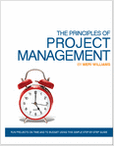
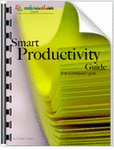
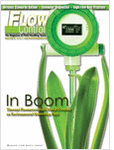
Have you downloaded my free "Choosing Alternative Fuel" Ebook? If not, then please download it here. It's Free and on top of getting the free ebook, you'll get eCourse on Alternative Fuel. It's a good and easy way to add more valuable information to yourself.
Labels: Chemical Engineer, Chemical Engineering, Learning Curve, News, pH.D
posted by Kipas Repair JB @ 5:14 PM,
,
![]()
Benefits of becoming a Professional Engineer
Wednesday, July 20, 2011
After writing the previous post, somebody asked me at Facebook this question: What are the benefits of becoming a PE (professional engineer)?
Well, there are many benefits if we look at it. I will provide my version of the benefits.
A PE will be respected for its ethics, skills and professionalism. Many will look up to them for solutions etc. Some will prefer those having PE status to assist them or work together. They are trusted engineers to handle/manage projects/contracts because a PE is well known for his/her credibility. A PE have the respect from its peers and community.
 In my country, if we are a PE, we have some level of advantage compared to the others who are not a PE. A PE can have the authority to certify/approve drawings etc. While this is true for mechanical, civil and electrical engineers, it is scarcely heard that a chemical engineer PE have such similar authority. This is because for example, a vessel's drawing will be designed/certified normally by a mechanical engineer PE. An electrical circuit drawing or wiring in a plant or building will be designed/certified by an electrical engineer PE. A road/bridge construction drawing will be designed/certified by a civil engineer PE. A chemical engineer PE will design/draw/approve certain chemical process. This is very much related to the rules and regulation in a country.
In my country, if we are a PE, we have some level of advantage compared to the others who are not a PE. A PE can have the authority to certify/approve drawings etc. While this is true for mechanical, civil and electrical engineers, it is scarcely heard that a chemical engineer PE have such similar authority. This is because for example, a vessel's drawing will be designed/certified normally by a mechanical engineer PE. An electrical circuit drawing or wiring in a plant or building will be designed/certified by an electrical engineer PE. A road/bridge construction drawing will be designed/certified by a civil engineer PE. A chemical engineer PE will design/draw/approve certain chemical process. This is very much related to the rules and regulation in a country.Being a PE, we can also associate with other PE and engineers, thus increasing our networking and connections. On top of that, most engineering organizations have their own publication and this is an area which we can contribute it either as editor or contributor. Well, of course this apply if you love to write. We can also get involved in the activities, courses, trainings, talks etc that are organized for our own continues learning process. This will enable us to get properly informed of any new technologies, knowledge or policy updates. There are also subject group that we can involve in such as available in IChemE. You can choose to participate in any subject group(s) related to your expertise/field.
The benefit and importance of being a PE can be seen from the statement of Craig Durham, CEng MIMMM. He is a Senior Completion Engineer working in the UK upstream oil industry. What he had highlighted (UK context) is interesting...
Unlike most doctors, solicitors, civil and mining engineers, petroleum engineers are not required to be Chartered, in the UK at least. Historically, competence has been checked by reliance on a CV, interview and annual appraisal, although it is increasingly common to have company-specific competency assessment schemes in place. While these are welcome developments, only CEng status indicates that your competence has been assessed by other engineering professionals and is comparable with internationally recognised standards.What Craig Durham attempted to highlight in the last sentence is very clear. If you are a PE, chances of you getting hired are more compared to those without PE status. The market value for a PE is also higher and very much in demand.
So why bother, particularly as, like me, I am sure that you work with many good engineers who are not Chartered, and being Chartered is not a guarantee of competence or ability? Perhaps the best reason is that it demonstrates a desire to take responsibility for your professional development, of taking pride in your professional achievements, of going the extra mile. Faced with a choice between similar candidates, one Chartered, one not, which one would you choose? (source)
Well, those are some points that can be highlighted. For academician, with PE status, it is a huge plus point to his/her career development. An academician with a PE status can normally cruise the career ladder faster than those who aren't. This is a scenario that I observed in universities in my country. On top of that, an engineering faculty requires a fix number of PE in order to be accredited by engineering accreditation council.
Well, those are some advantages that I can think of for now. If you have anything to add, feel free to mentioned it in the comment section. I'll add up some more when something struck my mind.
-------------------------------------------------------------------
Featured website: Core Talent Recruitment is a company specializing in manufacturing, supply chain, health & safety as well as engineering jobs. They aim to deliver optimum recruitment services and solutions that consistently exceed the candidates and clients expectations. You can just upload your CV and Core Talent Recruitment will do everything to find you the ideal role. It is as simple as that.
FREE Recommended magazines to get you updated with current engineering news
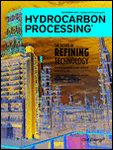
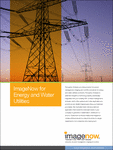

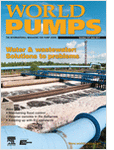 Have you downloaded my free "Choosing Alternative Fuel" Ebook? If not, then please download it here. It's Free and on top of getting the free ebook, you'll get eCourse on Alternative Fuel. It's a good and easy way to add more valuable information to yourself.
Have you downloaded my free "Choosing Alternative Fuel" Ebook? If not, then please download it here. It's Free and on top of getting the free ebook, you'll get eCourse on Alternative Fuel. It's a good and easy way to add more valuable information to yourself.Labels: Chemical Engineer, professional engineer
posted by Kipas Repair JB @ 1:06 PM,
,
![]()
I'm now a Corporate Member of Institution of Engineers, Malaysia (IEM)
Monday, July 18, 2011
Well here how the story goes on my quest to be a professional engineer under the Institution of Engineers, Malaysia (IEM).
2007
I registered with IEM as a graduate member. After officially becoming a graduate member, I searched for a mentor to help and guide me to be a professional engineer. Unfortunately, I could not find any professional chemical engineer that is available to be my mentor in Johor (the state that I live and work in). So, I decided to search for any mentor in Klang Valley area. Take note that I got the list of chemical engineering mentor from IEM. To cut the story short I found a mentor which I'm attracted to and contacted him. He is Hj. Ir. Tunai Shamsidi Ahmad, a very experienced chemical engineering consultant. He agreed to mentor me and I started recording my training and experience report. My training reports were all about my activities in the plant plus several projects that I was involved in. That time I was a process engineer working in a physical refinery plant. According to my mentor, my working experiences keep repeating month after month. That, according to him is not good enough for me. I need to get involved with more projects and tasks.
2008
I resigned as a process engineer in early 3rd quarter this year and began my career as a lecturer. As a lecturer, I strongly believe I have better control of my career direction. I'm not only involved in lecturing but also research, consultancy, writing, publication and many more. It's quite an interesting experience.
My mentor was very delighted after he knew that I become a lecturer. He said by becoming a lecturer, I will have more diversified projects that I can be involved in. As a result, my training reports became more interesting. Earlier on, my training reports dwell on activities in the plant/factory. But now, I have totally new experiences that I can record in my training report.
2010
After 3 years recording my engineering training report and completed attending all mandatory trainings required by the Board of Engineers Malaysia (BEM), finally I'm qualified for the professional interview (PI) which is to be conducted by IEM. I then filled up the required forms, paid the fees and standby for the PI. While waiting for the PI, I have to prepare 2 more detail reports which are (1) Project Technical Report and (2) Training and Experience Report.
Earlier on, I had a headache thinking of what project I should write for my Project Technical Report. However, after a while I considered the Plate Heat Exchanger Installation in my plant. The project really fits all requirement and elements for the report such as design, engineering, economic, planning, project management etc.
2011
I was informed by IEM secretarial in January that my interview will take place in IEM head quarters in Petaling Jaya. Later in April, I received a call and email informing about my Professional Interview. I prepared for the interview like mad. The interview will consists of (1) oral session and (2) Essay questions which is related to our own technical project and engineering ethics.
Finally, in late June, I received a notification email from IEM confirming that I have passed my Professional Interview. Hence, my membership is upgraded to corporate member which will then be awarded the title IR (Ingeniur) by BEM (after I completed necessary paper works). Thank God I passed this Professional Interview. All the hard work has finally paid off. It was very tough to prepare the project technical report. It was like doing the final year design project alone (not in a group). But now, the project must be a real project that I have handled before. I must also thank many people for assisting me on creating my project technical report.
What about IChemE (Institution of Chemical Engineer) membership?
At the same time of preparing my project technical report, I also prepared myself to be a chartered engineer under IChemE. At this moment, IChemE representative has already emailed me and ask me to standby for the interview which will take place anytime from now. Deep inside I hope I can also make it for the interview. Wish me luck... :)
My 2 cents:- If you are not yet a professional engineer, don't wait!!! Register yourself with the engineering professional body in your country, follow the training program and record your engineering training experiences. I'm saying this because I wish somebody have advise me earlier to be a professional engineer while I'm still younger (I mean just after graduating). So, if you are in Malaysia, register with IEM. If you are in UK, register with IChemE. If you are in USA, register with AIChE. The same goes to the other countries... Good luck :)
.................................................................................................................................
FREE Recommended magazines to get you updated with current engineering news
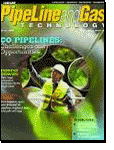
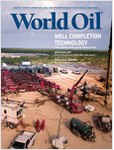
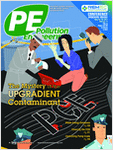
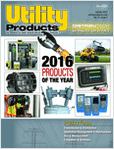
Have you downloaded my free "Choosing Alternative Fuel" Ebook? If not, then please download it here. It's Free and on top of getting the free ebook, you'll get eCourse on Alternative Fuel. It's a good and easy way to add more valuable information to yourself.
Labels: Chemical Engineer, Chemical Engineering, Learning Curve, Training
posted by Kipas Repair JB @ 10:16 PM,
,
![]()
The Author

I’m Zaki. I used to be a project, process and chemical engineer. Few years ago I successfully became a Chartered Engineer (IChemE) and Professional Engineer (BEM). I'm now employed as a chemical engineering educator/researcher/consultant. Hope you like reading my blog. I welcome any feedback from you. My email: zaki.yz[alias]gmail.com. TQ!


